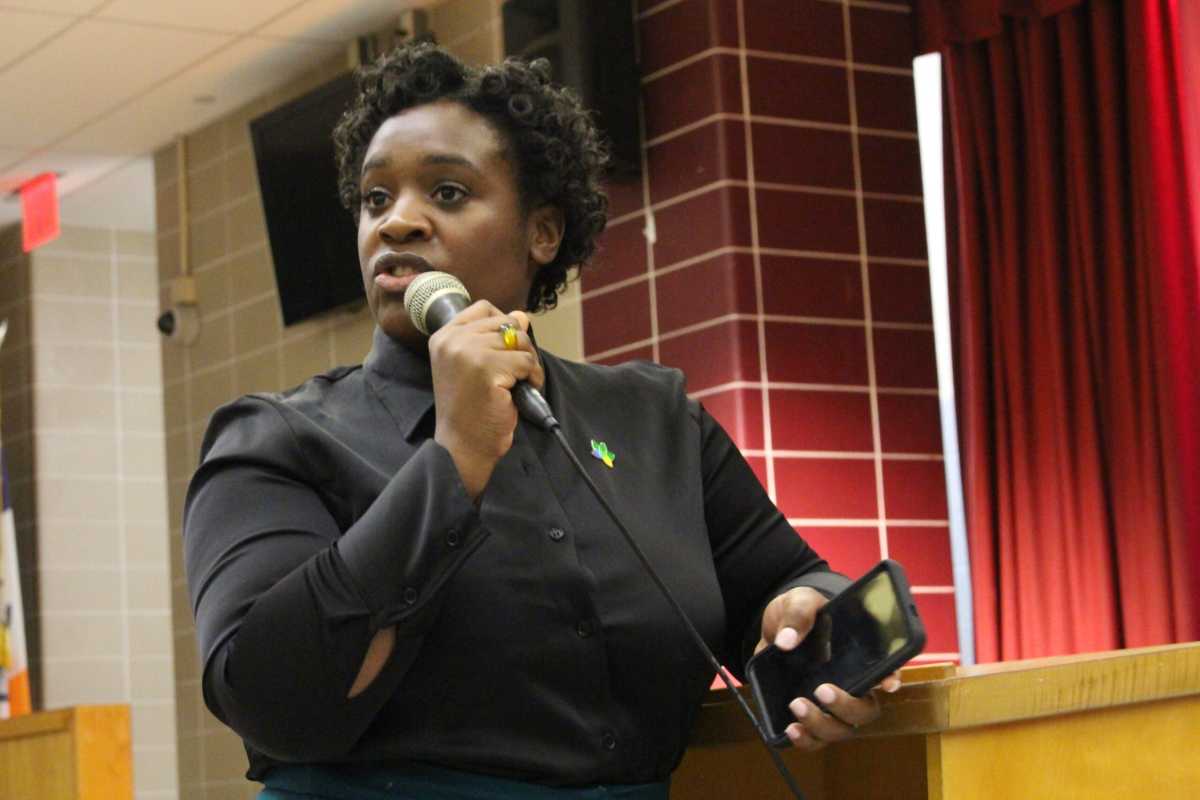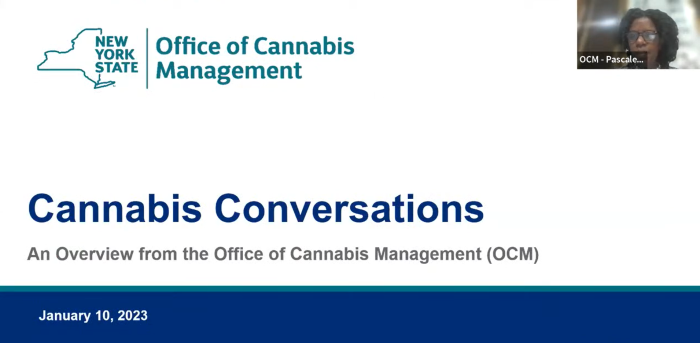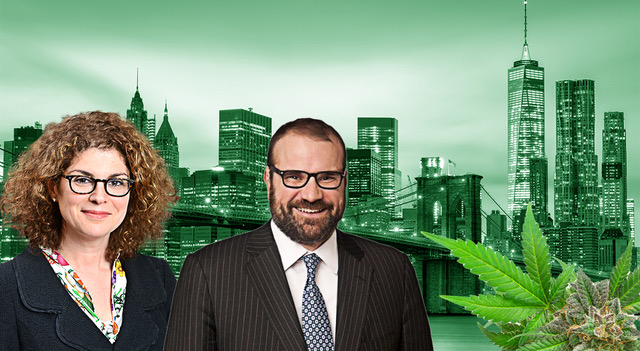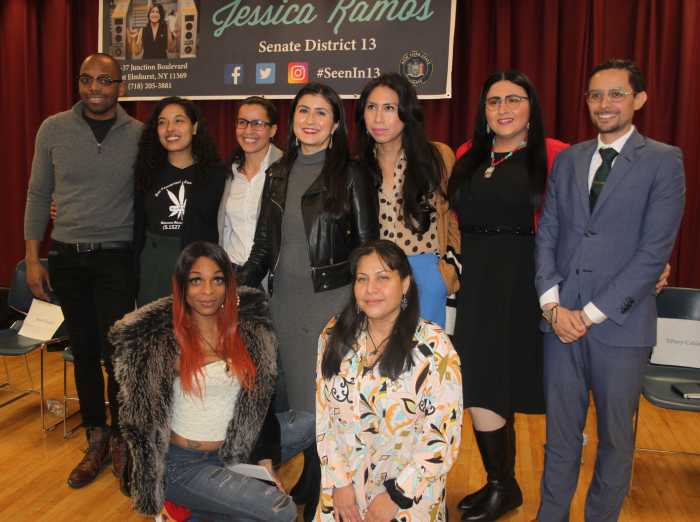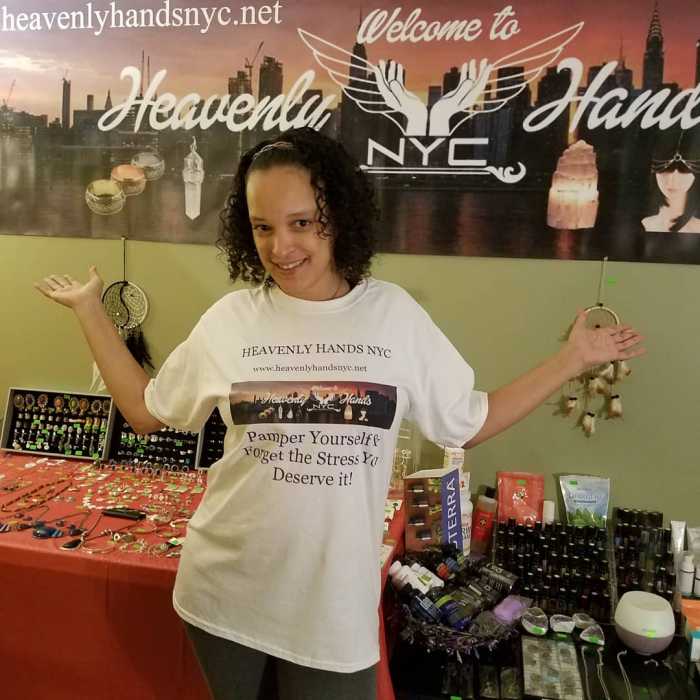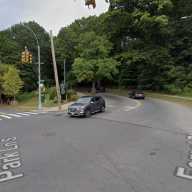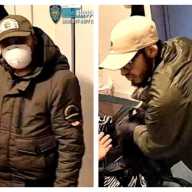Southeast Queens residents filled the auditorium at P.S. 270 in Rosedale on Thursday, May 11, for a town hall discussion with local electeds and NYPD officials on how to protect their neighborhoods from the harmful effects of illegal smoke shops.
The event was hosted by Councilwoman Selvena Brooks-Powers, Senators Leroy Comrie and James Sanders Jr., City Council Speaker Adrienne Adams, and Assembly Members Khaleel Anderson and Alicia Hyndman.
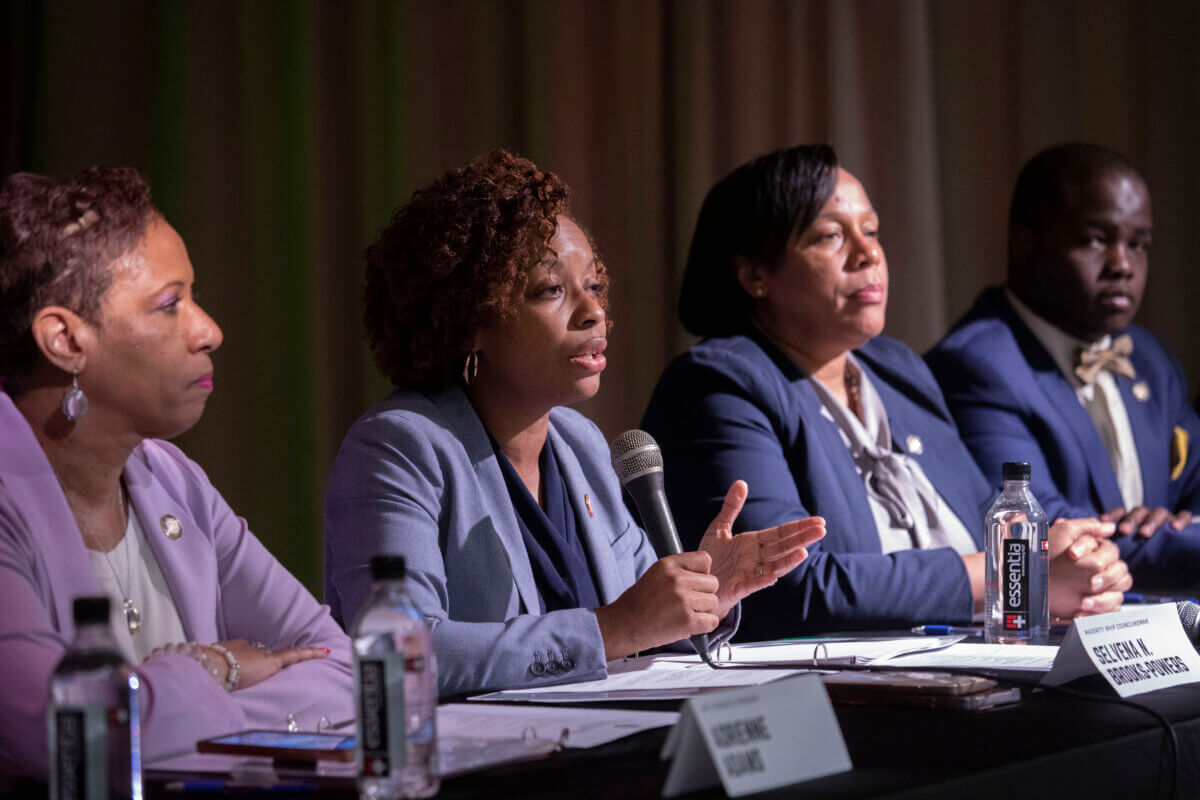
New York City Sheriff Anthony Miranda, Queens Patrol Borough South Chief Kevin Williams and Shanon LaCorte, director of Crime Strategies & Intelligence for the Queens District Attorney’s Office, were also in attendance to answer residents’ questions.
Residents were given an index card to write their questions, which was then read aloud by the officials, followed by an explanation of what is being done on the local and state level to shut down the illegal smoke shops that have been opening nearby schools and houses of worship. Later in the evening, only about five residents were able to approach the podium to ask a question.
Wylia Slade, an educator and football coach, stressed the importance of educating minors and young adults about the use of cannabis.
“We have been sold illegally for years. I go to the deli, they’ve been selling weed to these kids for years, so don’t blame the smoke shops — we have a bigger problem than that,” Slade said. “My students asked me questions and I wanted answers, so I educated myself. I go to the schools and talk to these kids … their parents aren’t talking to them or educating them. Until we address the issue, we’re going to keep having problems.”
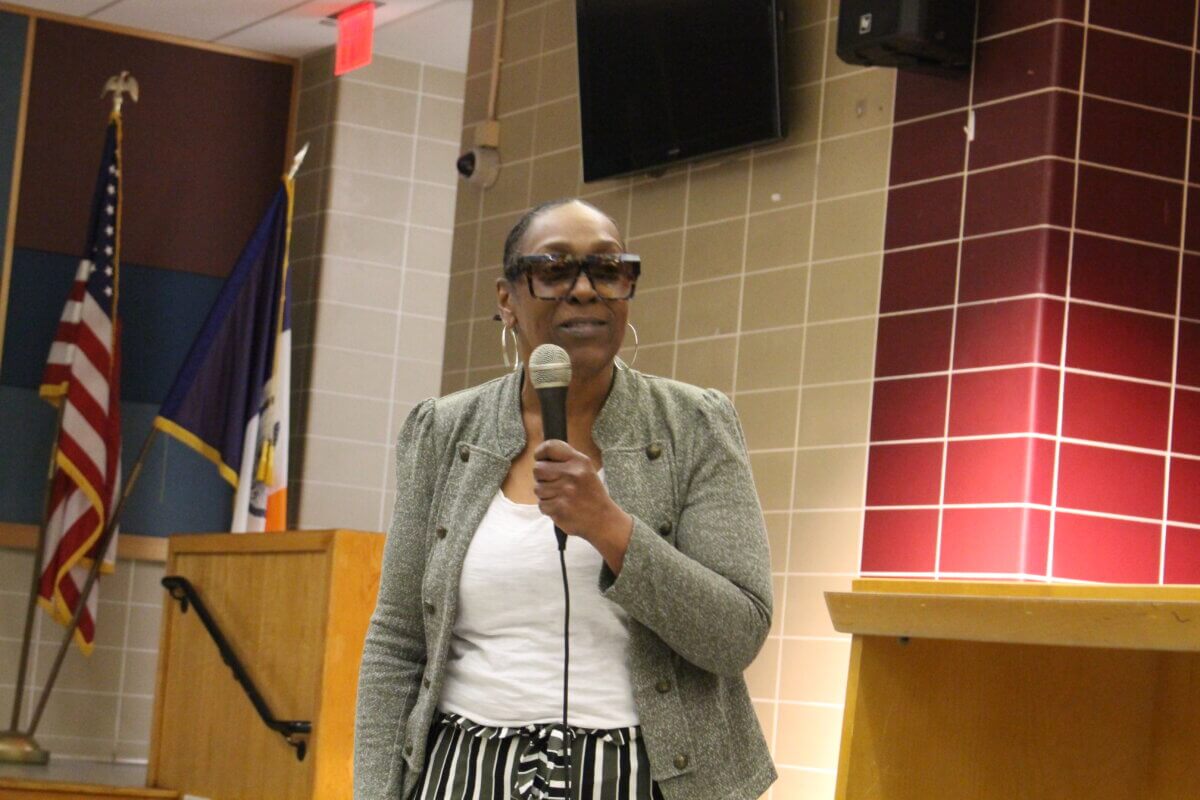
Another resident raised a question about law enforcement officials locking up illegal shops in neighborhoods that do not have a license. There is currently one legal smoke shop located at 162-03 on Jamaica Ave.
“If you’re saying there’s only one legal smoke shop in Jamaica and you know that there are 15 illegal smoke shops, why can’t you go in and have them either produce a license or padlock that shop until they can produce a license?” the resident asked.
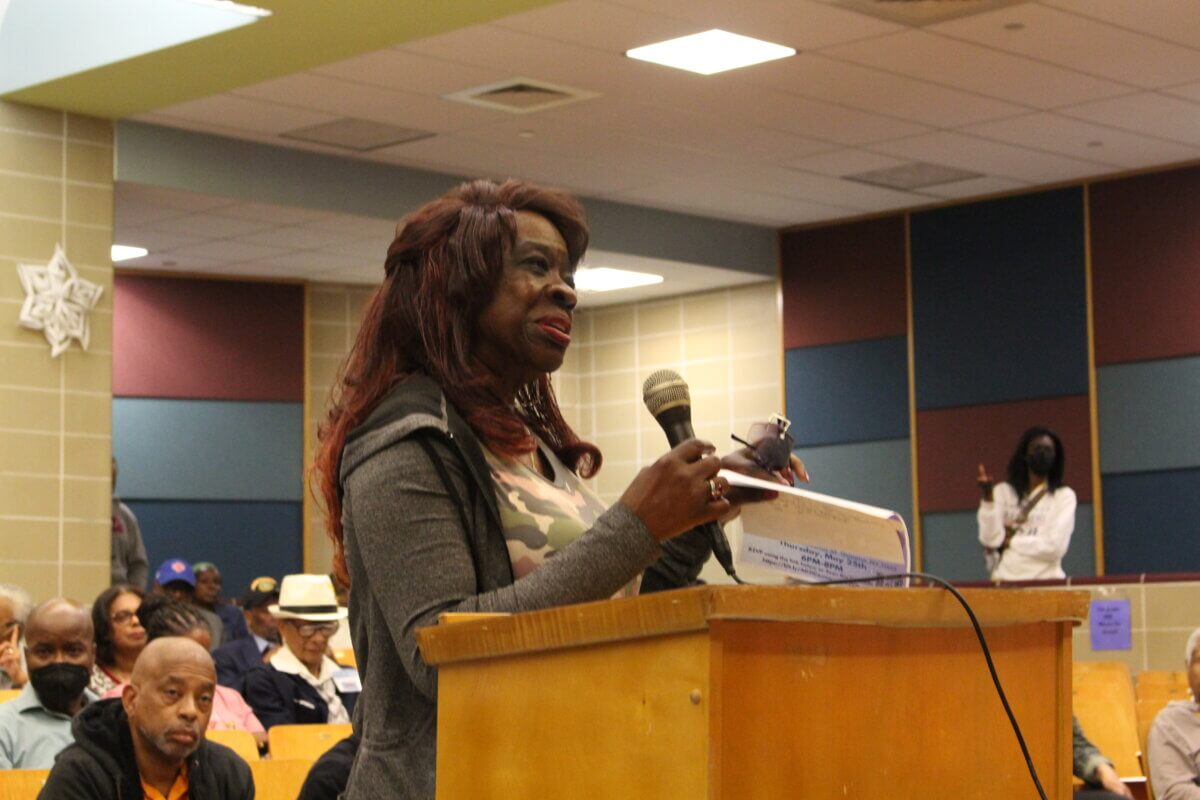
According to Miranda, the law doesn’t provide for the immediate closing of a location following an investigation.
“They still have to go to court and be found guilty before a judge. After they’ve had their hearing, the judge can issue the sanctions that they want to, which includes nuisance abatement, then we can close the location down,” Miranda told a resident.
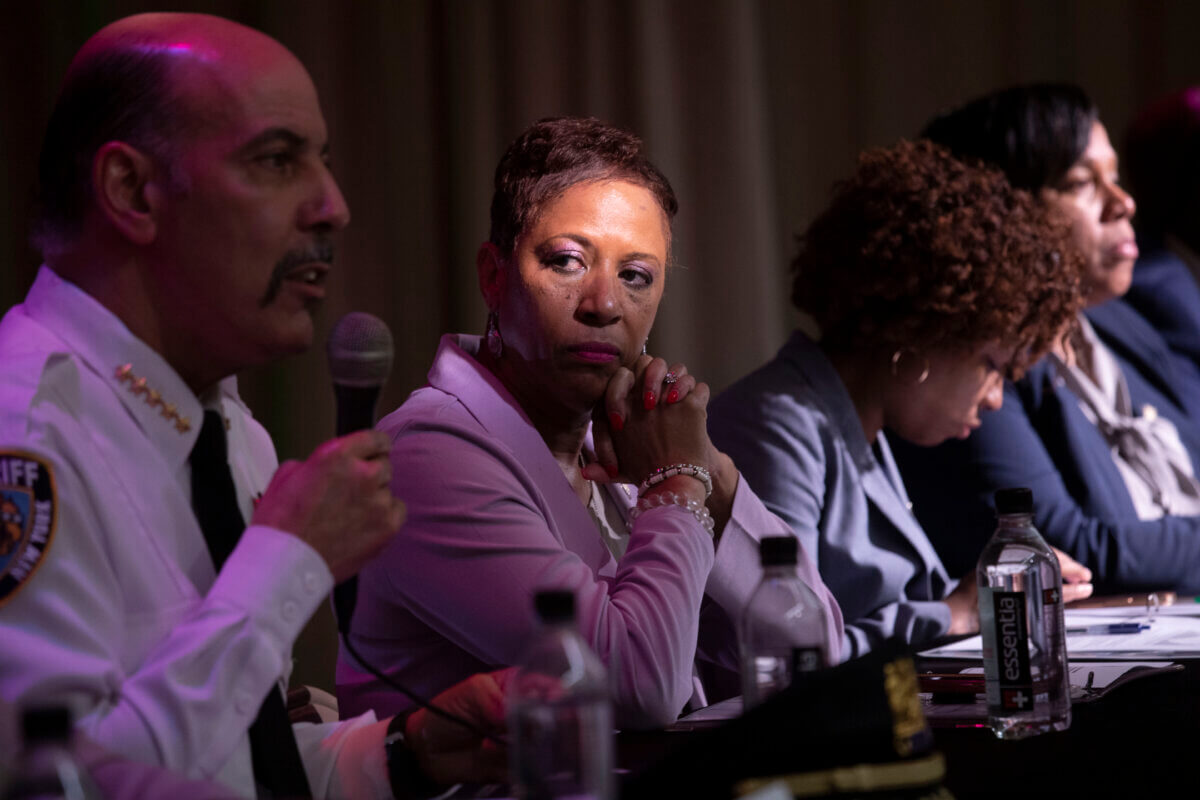
When asked why smoke shops are open 24/7 while bars and liquor stores close at a certain time, Miranda said it’s simply because individuals are not complying with the existing rules and regulations to operate a smoke shop legally in the city.
“These are individuals who are not interested in bringing any benefit back to the community, such as social programming and improving community services,” Miranda said. “These people are only interested in making money. All of these locations that are engaged in illegal activities are robbing us of those benefits.”
Miranda reminded the public to be cognizant of the serious health risk in the unregulated market sale of cannabis.
“We’ve gone into locations where they’re mixing products in the basement and we’re finding more and more fentanyl on the street,” Miranda said. “We had an arrest the other day at a location that was using roach spray.”
Many of the packages are illegal and counterfeit, although sellers may claim their products are shipped from California, according to Miranda.
“You’re not getting what you’re paying for or what you think you’re paying for, and in fact, many of these things health-wise are dangerous for people using them,” Miranda said.
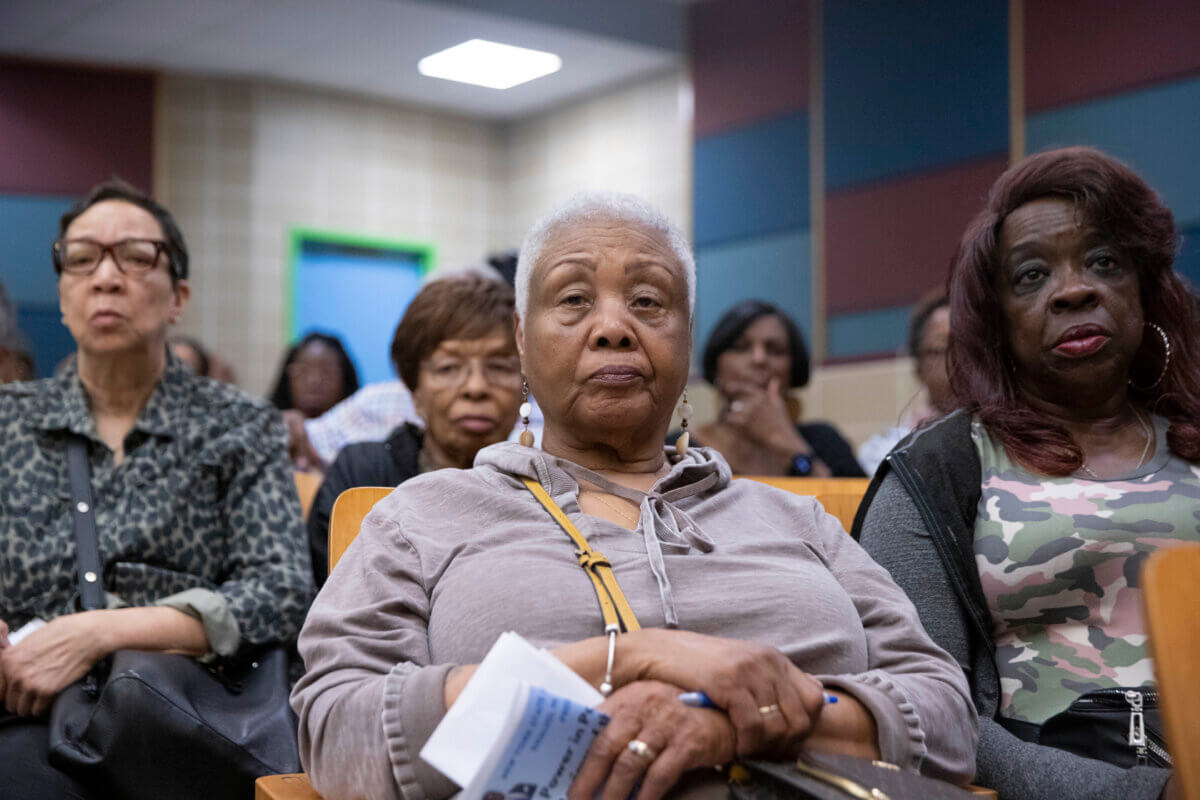
Regarding statistics, Miranda said that the NYC Sheriff’s Joint Compliance Task Force has inspected four locations in District 31, where the estimated street value of items seized is over $325,000 and the civil penalties are over $67,000.
“We do a complete inspection of the area, seize the illegal products, and educate them on how to participate in the legal market,” Miranda said. “We issue the civil violations when we find enough there that commits a felony, then we make an arrest because they’re engaging in activities that violate the law.”
The Department of Finance is also issuing letters to landlords who have said they’re having problems evicting individuals who signed a lease stating that they will open, for example, a grocery store, and are instead operating a smoke shop.
Williams noted that the NYPD has shut down two smoke shops through the Nuisance Abatement Program. So far this year, according to Williams, the NYPD has conducted 129 special operations, resulting in 51 felony arrests, including the findings of five firearms, 29 misdemeanor arrests, 25 violation arrests, and summonses issued to locations.
Besides the sale and effect on the community, Williams said crime is also an issue, since illegal smoke shops are solely a cash business and are subject to robberies.
“We aggressively pursue that angle to lock up people who make a living from robbing these smoke shops,” Williams said. “We work with our partners in the DA’s office and we have our Narcotics Bureau of Queens South. We have 16 locations in Patrol Borough Queens South — hopefully, when we shut these places down, we can shut it down for good.”
The proliferation of illegal smoke shops isn’t just a problem in southeast Queens — it’s a citywide issue, according to lawmakers.
While it’s difficult to pinpoint just how many shops are selling tobacco and marijuana products without a license, Adams said they’ve already seen the impact of the illegal stores in their communities, especially in children.
In January, the council hosted a joint oversight hearing on the opening of smoke shops in New York City, where the lawmakers learned about the numerous reports of “brazen advertisements and aggressive marketing tactics” to promote the sale of cannabis products to children, according to Adams.
“We’ve all heard so much about those beautiful little gummy bears that look so nice and enticing, and those lollipops and pretty candy-coated items that children are attracted to. These deliberate schemes to entice young, vulnerable people into our communities are harmful and unacceptable. They’re not welcomed in our community or anywhere else in the city,” Adams said.
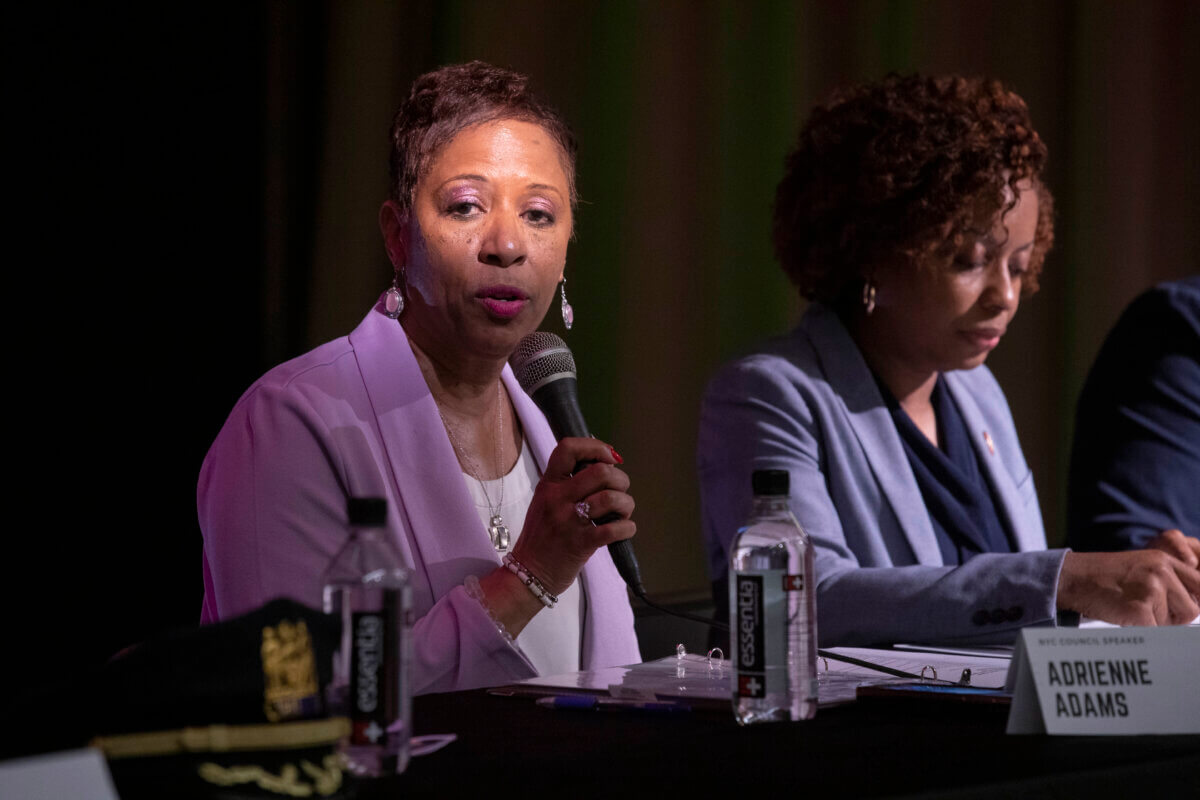
Brooks-Powers said the City Council is considering bills that would improve public education, as well as prohibit property owners from knowingly leasing to unlicensed cannabis owners.
The councilwoman is co-sponsoring two bills in the city council.
Intro 995, would require the city Department of Mental Health & Hygiene to collaborate with the city Department of Consumer & Worker Protection to create and implement a public awareness campaign on the dangers of purchasing cannabis and cannabis products from unlicensed retailers targeting minors and young adults.
The second bill, Intro 1001, would prohibit knowingly leasing commercial premises to a tenant who uses the premises for the distribution or sale of cannabis without a license.
Another bill, Intro 1010, would require the NYC Office of Technology & Innovation to create a specific 311 category to log complaints of illegal smoke shops in order to collect data.
“This is a danger to our community, and especially to our kids. No child should be able to buy cigarettes or cannabis at our corner store,” Brooks-Powers said.
On the state level, Hyndman reassured the public that she and her colleagues are working at a frenetic pace to rid the smoke shops.
“When we passed legislation in the state in 2021 to legalize cannabis, we put things in place through the Office of Cannabis Management to make sure that those who had been convicted for the sale and purchase of cannabis to be the owners and distributors in the legal market,” Hyndman said. “We did not expect this proliferation of smoke shops to come about under the radar and find a way around it.”
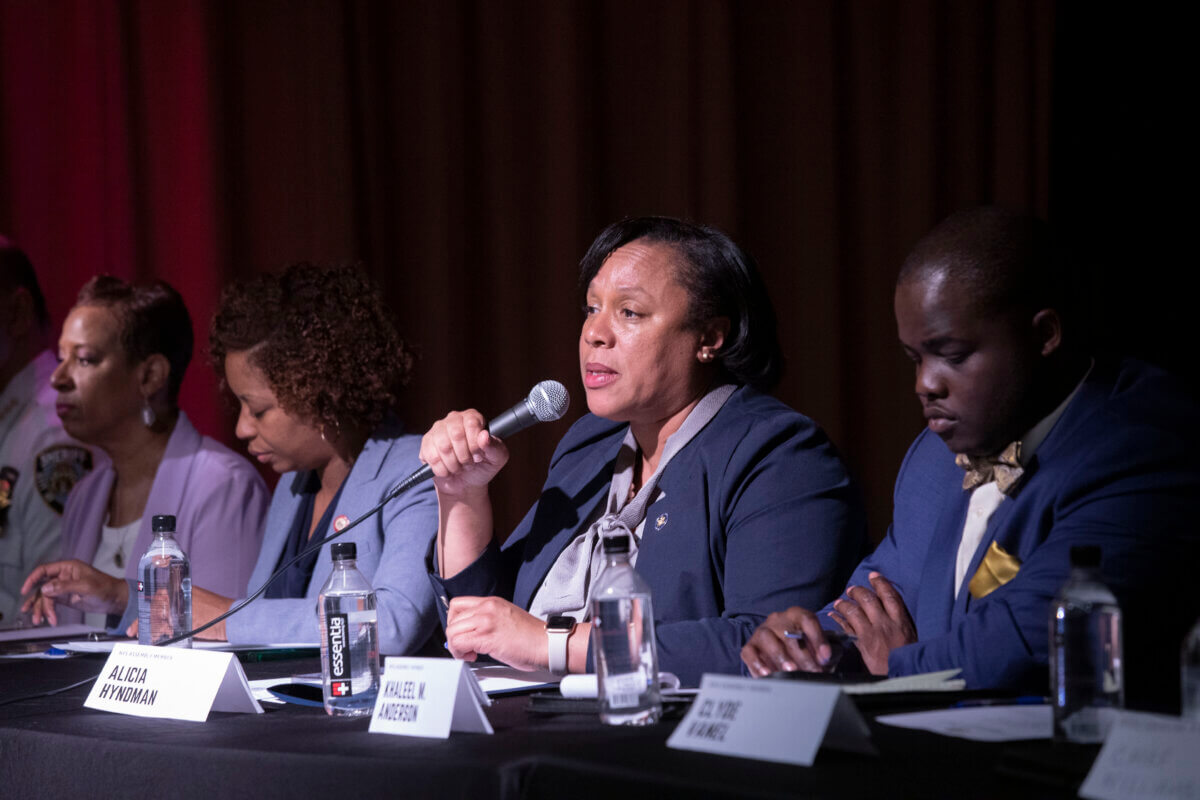
In the state budget, lawmakers were able to pass measures to crack down on smoke shops, according to Hyndman. This includes strengthening the Department of Taxation & Finance, which will have the ability as peace officers to enter the smoke shops, seize cannabis, and fine individuals depending on how much product is taken.
“The Office of Cannabis Management is working to make sure that shops are not open across the street from schools and churches,” Hyndman said. “We have to make the laws retroactive to close those places. I don’t have any sympathy for these businesses.”

